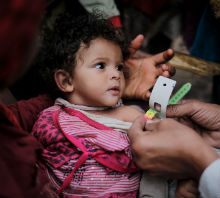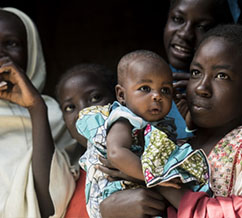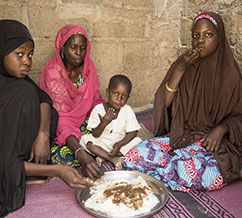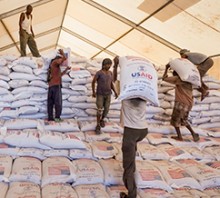Speeches Shim
The President’s national security strategy states that America should target threats at their source, catalyze international response to man-made and natural disasters and provide to those in need. As the 2016 Global Food Security Act states, “It is in the national interest of the United States to promote global food security.” A food-secure world where people are not worried about their children going to bed hungry is in the U.S. interest: stability helps ward off future conflict and prosperity opens new markets for U.S. exports and trade.
On March 6, U.S. Secretary of State Rex W. Tillerson announced more than $128 million in new FY 2018 funding for the humanitarian response in the Lake Chad Basin region, comprising areas of Cameroon, Chad, Niger, and Nigeria. The figure includes more than $13 million in USAID/OFDA funding, more than $96 million in USAID/FFP funding, and nearly $19 million in State/PRM funding.
On March 6, the U.S. Government (USG) announced an additional $184 million in humanitarian assistance for the South Sudan response, including $145 million for interventions in South Sudan and nearly $39 million for life-saving assistance to South Sudanese refugees in neighboring countries. The new funding comprises more than $107 million from USAID/FFP, nearly $17 million from USAID/OFDA, and more than $60 million from State/PRM
On February 16, three person-borne improvised explosive devices (PBIEDs) detonated in a market in Borno State’s Konduga local government area (LGA), resulting in at least 20 deaths and 70 injuries, international media report.
On February 8, the UN, in coordination with the Government of Nigeria (GoN), launched the 2018 Humanitarian Response Plan (HRP), requesting nearly $1.1 billion to address the humanitarian needs of 6.1 million people across northeastern Nigeria. In addition to the continued delivery of life-saving assistance and protection of vulnerable populations, the 2018 HRP prioritizes resilience-building initiatives and strengthening links to longer-term recovery to help conflict-affected populations rebuild their lives.





Comment
Make a general inquiry or suggest an improvement.